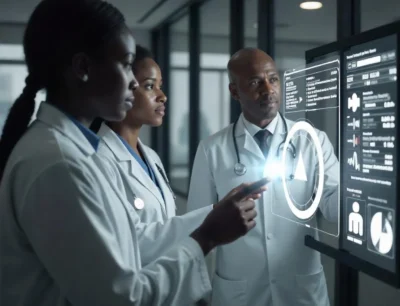AI-Powered Healthcare: NHS Takes a Proactive Step in Risk Detection
NHS deploys AI to detect maternity risks early—setting a global benchmark for patient safety, digital care, and proact
Notice: Test mode is enabled. While in test mode no live donations are processed.

NHS deploys AI to detect maternity risks early—setting a global benchmark for patient safety, digital care, and proact

Nordic Capital acquires Arcadia to expand AI-powered healthcare analytics and drive value-based care across global marke

Abridge just hit a $5.3 B valuation—discover how its ambient-AI “scribe” is rewriting medical notes (and the futur
